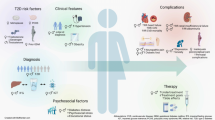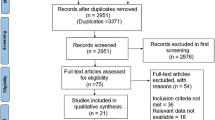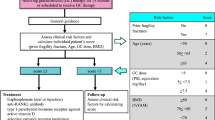Abstract
Cardiovascular disease is the leading cause of death in women. Older observational studies suggested a significant protective effect of menopausal hormone therapy (MHT) for coronary heart disease (CHD) when prescribed for women at the onset of menopause; and this also translated into a significant reduction in mortality as well. Multiple mechanisms have been found to support these findings. Various secondary prevention trials and the use of hormones in older women have shown negative findings and a trend for more coronary events in these women with atherosclerotic plaque. Data from the Women’s Health Initiative in younger women confirm the data in the observational studies showing a protective effect on CHD and mortality for conjugated equine estrogens (CEE) alone, whereas the data with CEE and medroxyprogesterone acetate do not show as positive an effect. Recent trials testing the “timing” hypothesis also have confirmed these data for benefit in younger women, but not in older women. Because prevention of diseases after menopause should be a major goal of providers of health care for women, the consideration of using MHT, particularly the use of estrogen, may once again be considered as part of this prevention strategy.

Similar content being viewed by others
References
Papers of particular interest, published recently, have been highlighted as: • Of importance •• Of major importance
Statistical Fact Sheet 2014 Update.www.heart.org.
Weiss NS. Relationship of menopause to serum cholesterol and arterial blood pressure: the United States health examination survey of adults. Am J Epidemiol. 1972;96:237–41.
Davis SR, Castelo-Branco C, Chedraui P, et al. Understanding weight gain at menopause. Climacteric. 2012;15:419–29.
Mendelsohn ME, Karas RH. Mechanisms of disease: the protective effects of estrogen on the cardiovascular system. N Engl J Med. 1999;340:1801–11.
Mendelsohn ME, Karas RH. Molecular and cellular basis of cardiovascular gender differences. Science. 2005;308:1583–7.
Lobo RA. Effects of hormonal replacement on lipids and lipoproteins in postmenopausal women. J Clin Endocrinol Metab. 1991;73:925–30.
Stampfer MJ, Coldit GA. Estrogen replacement therapy and coronary heart disease: a quantitative assessment of the epidemiologic evidence. Prev Med. 1991;20:47–63.
Henderson BE, Paganini-Hill A, Ross RK. Decreased mortality in users of estrogen replacement therapy. Arch Intern Med. 1991;151:75–8.
Grady D, Rubin SM, Petitti DB, et al. Hormone therapy to prevent disease and prolong life in postmenopausal women. Altern Med. 1991;117:1016–37.
Hulley S, Grady D, Bush T, et al. Randomized trial of estrogen plus progestin for secondary prevention of coronary heart disease in postmenopausal women. JAMA. 1998;280:605–13.
Herrington DM, Reboussin DM, Brosnihan KB, et al. Effects of estrogen replacement on the progression of coronary-artery atherosclerosis. N Engl J Med. 2000;343:522–9.
Manson JE, Hsia J, Johnson KC, et al. Women’s Health Initiative Investigators. Estrogen plus progestin and the risk of coronary heart disease. N Engl J Med. 2003;349:523–34.
Hsia J, Langer RD, Manson JE, et al. Conjugated equine estrogens and coronary heart disease; the Women’s Health Initiative. Arch Intern Med. 2006;166:357–65.
Post WS, Goldschmidt-Clermont PJ, Wilhide CC, et al. Methylation of the estrogen receptor gene is associated with aging and atherosclerosis in the cardiovascular system. Cardiovascular. 1999;43(4):985–91.
Umetani M, Domoto H, Gormley AK, et al. 27-Hydroxycholesterol is an endogenous SERM that inhibits the cardiovascular effects of estrogen. Nat Med. 2007;10:1185–92.
Hu P, Greendale GA, Palla SL, et al. The effects of hormone therapy on the markers of inflammation and endothelial function and plasma matrix metalloproteinase-9 level in postmenopausal women: the Postmenopausal Estrogen Progestin Intervention (PEPI) trial. Atherosclerosis. 2006;185:347–52.
Galis ZS, Sukhova GK, Lark MV, Libby P. Increased expression of matrix metalloproteinases and matrix degrading activity in vulnerable regions of human atherosclerotic plaques. J Clin Invest. 1994;94:2493–503.
Lobo RA. Evaluation of cardiovascular event rates with hormone therapy in healthy postmenopausal women: results from four large clinical trials. Arch Intern Med. 2004;164:48–84.
Stevenson JC, Hodis HN, Pickar JH, Lobo RA. Coronary heart disease and menopause management: the Swinging Pendulum of HRT. Atherosclerosis. 2009;207:336–3401.
Manson JE, Chlebowski RT, Stefanick ML, et al. Menopausal hormone therapy and health outcomes during the intervention and extended post stopping phases of the Women’s Health Initiative randomized trials. JAMA. 2013;310:1353–68. This is the most recent follow-up of the hormone trials from the WHI. The data in the 50–59-year-old group with CEE alone show significant benefit. The conclusion of the authors that there is no role in prevention should be challenged.
Rossouw JE, Prentice RL, Manson JE, et al. Postmenopausal hormone therapy and cardiovascular disease by age and years since menopause. JAMA. 2007;297:1465–77.
Manson JE, Allison MA, Rossouw JE, et al. WHI and SHI-CACS Investigators. Estrogen therapy and coronary-artery calcification. N Engl J Med. 2007;356:2591–602.
LaCroix AZ, Chlebowski RT, Manson JE, et al. WHI Investigators. Health outcomes after stopping conjugated equine estrogens among postmenopausal women with prior hysterectomy: a randomized controlled trial. JAMA. 2011;305:1305–14.
Salpeter SR, Walsh JM, Greyber E, Salpeter EE. Brief report: coronary heart disease events associated with hormone therapy in younger and older women. A meta-analysis. J Gen Intern Med. 2006;21:363–6.
Salpeter SR, Cheng J, Thabane, et al. Bayesian meta-analysis of hormone therapy and mortality in younger post-menopausal women. Am J Med. 2009;122:1016–22.
Harmon SM, Black DM, Naftolin F, et al. Arterial imaging outcomes and cardiovascular risk factors in recently menopausal women in the Kronos Early Estrogen Prevention study (KEEPS): A randomized controlled trial. Annals of Int Med. 2014
Hodis HN. ELITE – Does the trial outcome confirm or refute the timing hypothesis of hormone therapy? Cancun: Presented at the 14th World Congress on Menopause of the International Menopause Society; 2014.
Schierbeck IL, Renmark L, Tofteng CL, et al. Effect of hormone replacement therapy on cardiovascular events in recently postmenopausal women: randomized trial. BMJ. 2012;345:e6409. Prospective trial in 1,006 women at the onset of menopause treated with MHT for 10 years, followed for up to 16 years, and showing a significant reduction in CHD.
Lobo RA. Where are we 10 years after the Women’s Health Initiative? J Clin Endocrinol Metab. 2013;98(5):1771–80.
Hodis HN, Mack WJ. Hormone replacement therapy and the association with coronary heart disease and overall mortality: clinical application of the timing hypothesis. J Steroid Biochem Mol Biol. 2014;142:68–75.
Canonico M, Plu-Bureau G, Lowe GD, et al. Hormone replacement therapy and risk of venous thromboembolism in postmenopausal women: systematic review and meta-analysis. BMJ. 2008;336:1227–31.
Canonico M, Olger E, Plu-Bureau G, et al. Estrogen and Thromboembolism Risk (ESTHER) Study Group. Hormone therapy and venous thromboembolism among postmenopausal women: impact of the route of administration and progestogens: the ESTER study. Circulation. 2007;115:840–5.
Lidegaard O, Lokkegaard EA, Jensen A, et al. Thrombotic stroke and myocardial infarction with hormonal contraception. N Engl J Med. 2012;366:2257–66.
Lobo RA, Clarkson TB. Different mechanisms for benefit and risk of coronary heart disease and stroke in early postmenopausal women: a hypothetical explanation. Menopause. 2011;18:237–40.
Sare GM, Gray LJ, Bath PM. Association between hormone replacement therapy and subsequent arterial and venous vascular events: a meta-analysis. Eur Heart J. 2008;29:2031–41.
Henderson VW, Lobo RA. Hormone therapy and the risk of stroke: perspectives 10 years after the Women’s Health Initiative trials. Climacteric. 2012;15(3):229–34. Review.
Sweetland V, Beral A, Balkwill B, et al. Venous thromboembolism risk in relation to use of different types of postmenopausal hormone therapy in a large prospective study. J Thromb Haemost. 2012;10:2277–86.
Sturdee DW, Pines A, IMS Writing Group, et al. Updated IMS recommendations on postmenopausal hormone therapy and preventive strategies for midlife health. Climacteric. 2011;14:302–20.
Fournier, Berrino F, Clavel-Chapelon F. Unequal risks for breast cancer associated with different hormone replacement therapies: results from the E3N cohort study. Breast Cancer Res Treat. 2008;107:103–11.
Lewandowski KC, Komorowski J, Mikhalidis DP, et al. Effects of hormone replacement therapy type and route of administration on plasma matrix metalloproteinases and their tissue inhibitors in postmenopausal women. J Clin Endocrinol Metab. 2006;91(8):3123.
de Villiers TJ, Gass ML, Haines CJ, et al. Global consensus statement on menopausal hormone therapy. Climacteric. 2013;16:203–4.
Sarrel PM, Njike V, Vinante V, Katz DL. The mortality toll of estrogen avoidance: an analysis of excess deaths among hysterectomized women age 50 to 59. Am J Public Health. 2013;103:1583–8.
Lobo RA, Davis SR, De Villiers TJ, et al. Prevention of diseases after menopause. Climacteric. 2014;17:1–17. This is a “white” paper written on behalf of the International Menopause Society for the 2014 theme of World Menopause Day. It stresses the role of prevention for women after menopause and explores in detail the potential beneficial role of estrogen as part of this strategy.
Panay N, Fenton A. The ‘window of opportunity’ – should we be taking it? Climacteric. 2014;17:211–2.
Compliance with Ethics Guidelines
Conflict of Interest
Roger A. Lobo declares that he has no conflict of interest.
Human and Animal Rights and Informed Consent
This article does not contain any studies with human or animal subjects performed by any of the authors.
Author information
Authors and Affiliations
Corresponding author
Rights and permissions
About this article
Cite this article
Lobo, R.A. Menopausal Hormonal Therapy and Cardiovascular Disease. Curr Obstet Gynecol Rep 3, 217–222 (2014). https://doi.org/10.1007/s13669-014-0092-9
Published:
Issue Date:
DOI: https://doi.org/10.1007/s13669-014-0092-9




